
Transitions Online_Around the Bloc-Romanian Ruling Party Pitted Against Corruption Agency
Social Democrats close ranks as two of their ministers face abuse of office allegations in a corruption case involving the party’s boss.
More...We kindly inform you that, as long as the subject affiliation of our 300.000+ articles is in progress, you might get unsufficient or no results on your third level or second level search. In this case, please broaden your search criteria.

Social Democrats close ranks as two of their ministers face abuse of office allegations in a corruption case involving the party’s boss.
More...
The powerful interior minister is also under a spotlight as the authorities open a probe into corruption allegations against him.
More...
Opposition parties claim Slovenian authorities concealed the laundering of over 1 billion euros from an Iranian state bank with connections to nuclear weapons proliferation.
More...
Event was arranged by a former U.S. lawmaker with ties to leading Ukrainian and Hungarian politicos.
More...
This paper examines students’ attitudes towards corruption at the University of Belgrade Faculty of Law. The author relies on the results of his own research related to the students’ value system and, more precisely, to the prevalence, causes, forms and willingness of the students to take part in corruption. The manner in which the author has systematized quantitative data obtained by this research, as well as the conclusions he has reached, are intended to serve as a groundwork for a future project, which should improve analytical, descriptive and explicative investigation of corruption in Serbia. Namely, the author sees the body of research which was published thus far as relatively modest when it comes to the level of theoretical treatment, as it is mainly opinion – and exploration related, and predominantly comprised of sociological post factum interpretations, without any predictive potential.
More...
The principles of „Public Procurement” are important for the proper functioning of the public procurement system. There is no doubt that principles of public procurement system have a special significance for the above mentioned system, since they indicate the direction of interpretation of provisions of the public procurement law as well as they allow a proper interpretation of the meaning of legal norms. The purpose of this elaboration is to present two basic principles of the public procurement law, i.e. the principle of fair competition and equal treatment of economic operators as well as the principle of transparency. The Author indicates the institutional expression of these principles in the procedure of awarding public procurement and indicates the violations of the principles which occur in the practice of law.
More...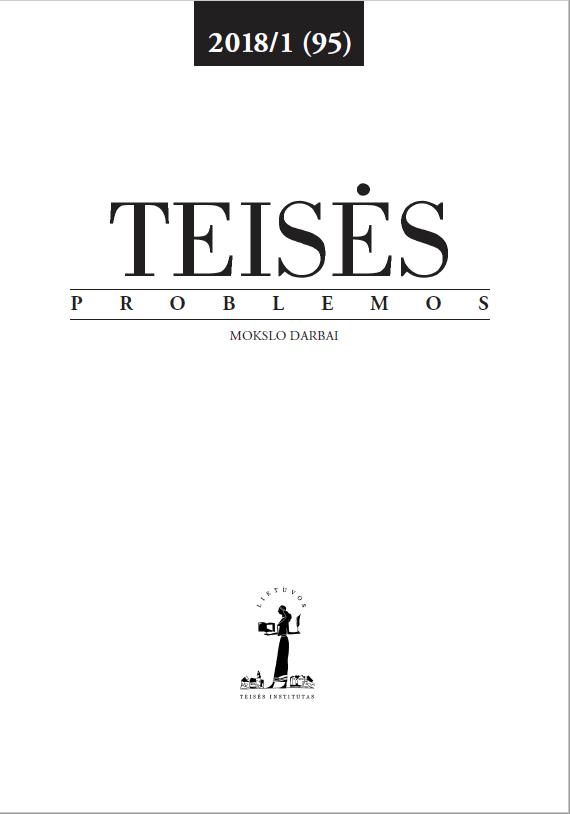
The article deals with voter bribery cases in terms of electoral law. A particular focus of research is drawn on the factual situation of this phenomenon of political corruption in Lithuania, the state of legal regulation and problems of its practical application, challenges being faced by institutions and society when seeking for transparent and democratic elections and appropriately legitimate formation of political representative institutions or an outcome of question solved by a referendum. The author is analysing whether currently invoked control, reaction and anticorruption measures are sufficient and contribute towards effective implementation of provisions of electoral (referendum) laws foreseeing prohibition to bribe voters and persons eligible to vote. The samples of voter bribery cases are presented in order to illustrate how differently content of prohibition to bribe voters and persons eligible to vote is perceived by subjects to whom it is addressed and main institution, i. e. the Central Electoral Commission, which conducts control of its observation. As well it is analysed why in Lithuania this illegal form of electoral agitation is still popular, despite sanctions being applied and certain preventive activity being carried out. Prohibition to bribe voters and persons eligible to vote to Lithuanian electoral laws was introduced in 2005, but such practice is still popular among participants of political campaigns and persons related to them, while “electoral agitation” of such kind itself takes on new and more sophisticated forms, which are “resistant” for relevant identification and qualification. There are several factors influencing this. Firstly, preventive mechanisms do not work properly or are applied too moderately. Secondly, legal regulation in this field is partly inconsistent or ambiguous, therefore some of violations are programmed automatically. In this respect the situation should change after adoption of Elections Code. Thirdly, the Central Electoral Commission does not possess enough control measures and its pratice not in all cases is consistent or reasonable. Fourthly, sanctions foreseen in electoral laws for violations of prohibition to bribe voters and persons eligible to vote not in all cases are applied properly. However, principled position of the Constitutional Court, increasing civil society involve¬ment in democratic process and stricter attitude of the Central Electoral Commission during political campaigns presupposes that recently more and more investigations concerning potential bribery of voters and persons eligible to vote are being carried out. Although the number of violations detected is relatively constant, the situation is improving and more frequently violations are of a nature which does not require to apply ultima ratio sanction of elimination, which could be questioned in the light of legal-democratic efficiency.
More...
Public organisation with mature integrity systems are resistant to the misconduct of their own employees, such as corruption and other misuses of public property. This article argues that legality, legitimacy and legacy are the three legs of a solid system of organisational integrity. Legality since compliance with the legal rules is the precondition of integrity. Organisations moving from legality to legitimacy build their inner regulations on the values and basic principle of the laws and not on their specific provisions only. Organisations with integrity try to leave legacy to their successors, valuable fortune to the future generation, they try to fulfil their mission and help their employees to realize their vocation. The endeavour to go beyond legality to legitimacy and create legacy helps organisations to exceed the level of compliance and reach the level of integrity.
More...
Drama unfolds in Kyiv as police arrest the former Georgian leader, then give way to onslaught by his supporters.
More...
Pressure is mounting on Bulgaria to focus on border corruption ahead of its European Commission presidency.
More...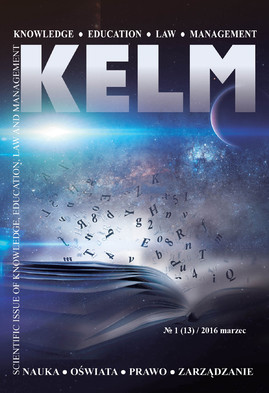
The article is based on the analysis of content speciallycriminological prevention of corruption in Ukraine, the basic issues that need to develop scientific and improvement in regulatory levels, including taking into account international best practice.
More...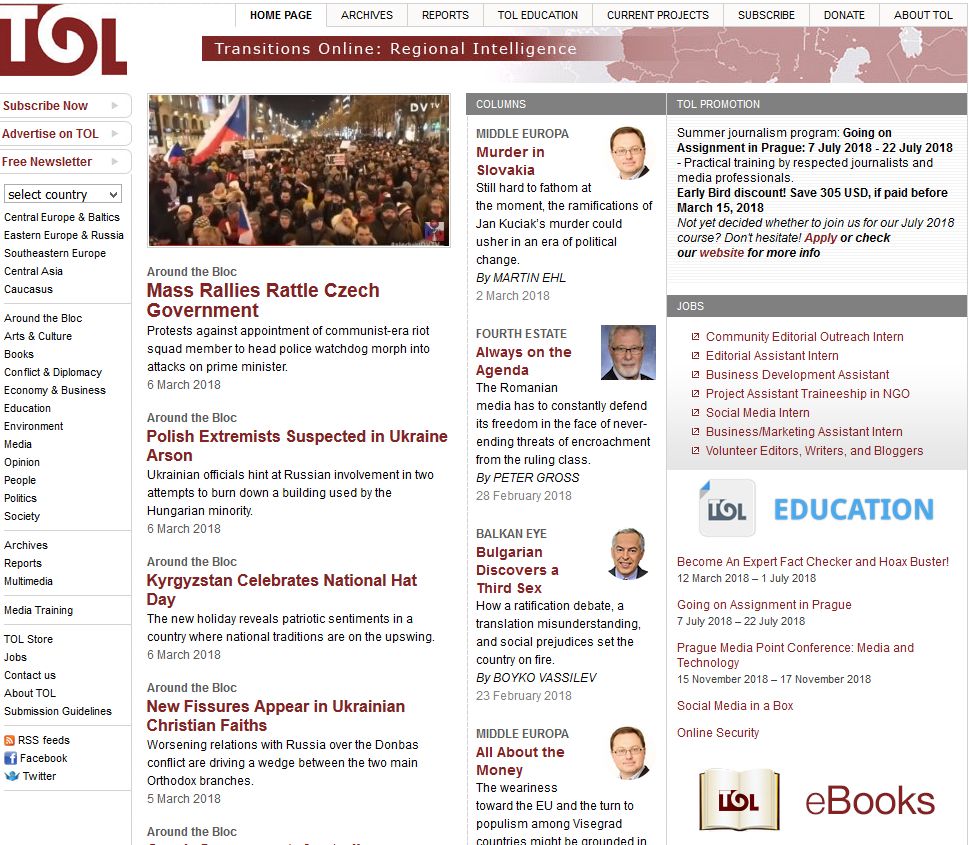
The Romanian media has to constantly defend its freedom in the face of never-ending threats of encroachment from the ruling class.
More...
Corruption becomes the greatest enemy most countries face including Indonesia. Commitment to eradicate corruption significantly increases yet it would be meaningless if it is not supported by adequate legislation to implement the law effectively. Reversal burden of proof essentially aims to facilitate law enforcers to seek and disclose assets a suspect owns allegedly as corruption crime. The principle of reversal burden of proof was originated from Anglo-Saxon countries and this still applies to certain cases such as bribery-related gratifications as Malaysia and Singapore implement. In Indonesia, provisions on the principle of reversal burden of proof have been long recognized even since 1960 on the first law on corruption crimes. Nevertheless, for more than a half of century, the provision on reversal burden of proof has never been implemented. It occurs since articles which govern the issues barely provide clear regulation. It only mentions the principle yet never issues an implemented regulation to support the principle. In regards to this, the research is aimed at investigating, seeking and analyzing the weaknesses in implementing the principle of reversal burden of proof in corruption crimes recently as well as discussing obstacles in law enforcement.
More...
High court orders a referendum on government-backed railway project to be re-run.
More...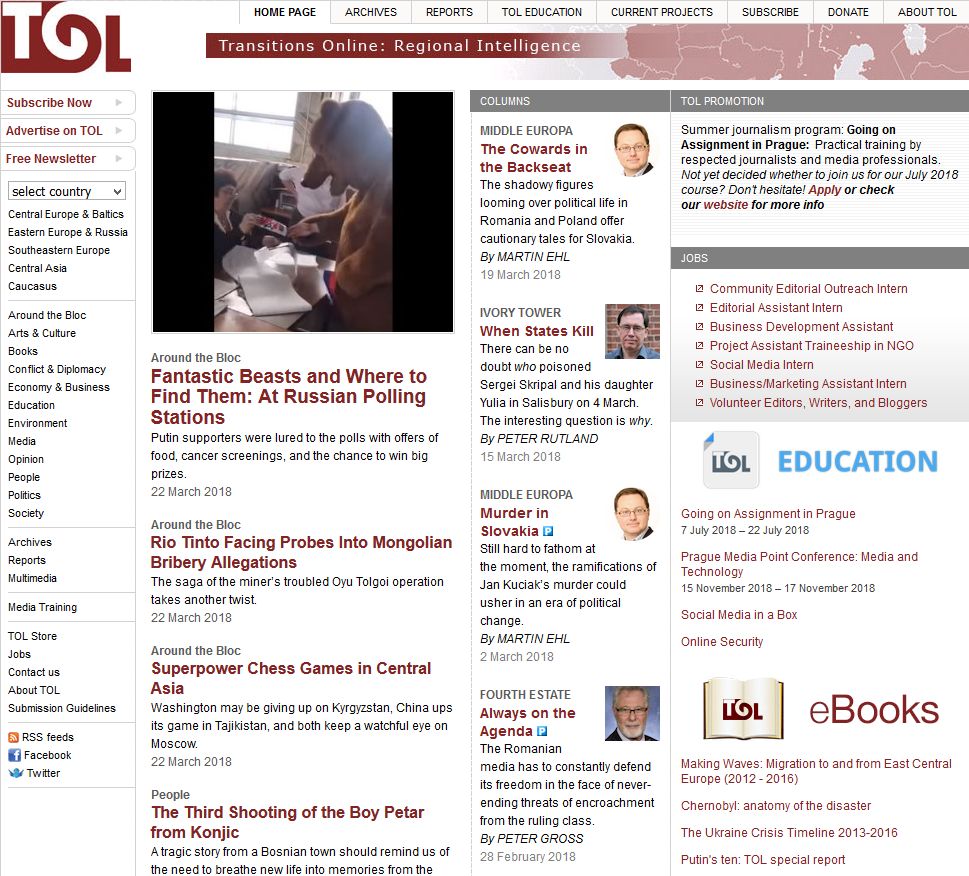
Nadezhda Savchenko fires back, says government is responsible for the disasters in the east, plans presidential run.
More...
Decision comes a year after a series of international raids allegedly foiled an attempt on the life of Vladimir Plahotniuc.
More...
The move could bring locals one step closer to visa-free traveling within the Schengen zone.
More...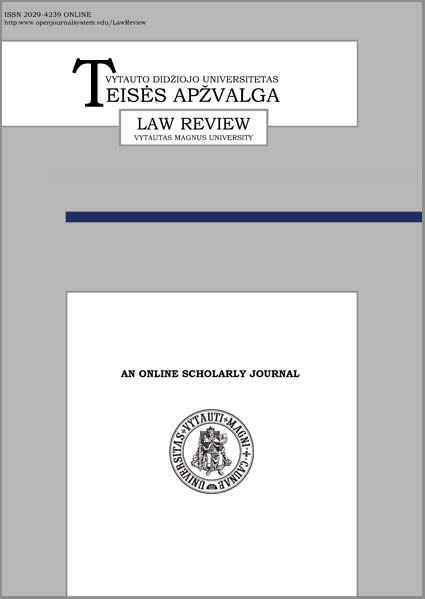
The article contains a detailed analysis of the legal regulation of confidentiality assurance requirements or, in other words, the obligation to protect confidential information during public procurement: the legal regulation of the European Union as well as the provisions of the implementing law on Public Procurement are analysed and an assessment of these provisions in scientific legal literature is provided. After analysing the aforementioned legal regulation, it is concluded that the legal regulation of the European Union that presupposes the primary conclusion that contracting authorities must ensure in all cases the protection of information transferred to them by suppliers and defined as confidential by the suppliers only applies if the national legal regulation implementing this regulation does not stipulate otherwise. An assessment of the national legal regulation, inter alia, a comparison of the provisions of Public Procurement that were valid before 1 July 2017 with the provisions of the Law on Public Procurement that came into force on 1 July 2017 shows that the national legal regulation of the Republic of Lithuania regarding the protection of confidential information during public procurement is becoming stricter, i.e. the Law on Public Procurement provides not only for the protection of confidential information as such, but it also defines which information may be considered confidential and vice versa, which information is not regarded as confidential during public procurement even if the supplier indicated that the information is allegedly confidential. Further, the article analyses specific types of information that may be considered confidential, i.e. trade (business) secret and confidential aspects of a proposal; the notion and the characteristics of the specified information are discussed. In addition, the notion, characteristics, and analysis of information that cannot be considered confidential during public procurement are presented and it is clearly indicated that the entire proposal cannot be regarded as confidential under any circumstances. It is also emphasised that the list of information that cannot be considered confidential (with certain exceptions) provided in the Law on Public Procurement is not final. Any other information, even though it is not directly referenced in the law, will not be regarded as confidential either unless the supplier provides proof confirming the need for ensuring data confidentiality during public procurement. After the analysis of the notion of confidential information, entities of confidential information and their rights and obligations are analysed. It is determined that the main entity with the most rights and obligations according to the confidentiality legal regulation is the owner of confidential information, i.e. the supplier participating in public procurement because the assessment of any information as confidential or non-confidential is possible only if the supplier specifies the confidentiality of the information. If the supplier states and explains in the proposal that information given in the proposal is confidential, the contracting authority as well as the public procurement commission of the contracting authority, its members or experts and other persons cannot disclose this information to third persons. In other words, the specified entities are obligated to ensure proper and sufficient protection of the supplier’s confidential information, i.e. information labelled as confidential by the supplier cannot be given to third persons who ask for it. However, it is emphasised that this obligation is not limitless: although qualification of information as confidential primarily depends on the supplier’s instruction in this regard in the proposal, such an instruction of the supplier is not as such obligatory for the contracting authority; therefore, cases when the contracting authority may ignore the supplier’s instruction are described in the article in detail. Finally, it is stated on the page that the protection of confidential information during public procurement has limits that are primarily based on the requirements of the transparency principle. Public procurement under market economy conditions is impossible without transparent implementation as a direct precondition for fair and equitable competition. Transparency is often regarded as a means of ensuring the same view of contracting authorities acting in compliance with legal requirements on suppliers’ proposals without prioritising any of them. Therefore, legal regulation of public procurement must ensure transparency to the extent sufficient for the suppliers to compete with one another effectively, to protect infringed rights, to prevent corruption, and for the public concerned to exercise the right to receive information. One of the main means of implementing the transparency principle and the suppliers’ right to effective protection of rights is the suppliers’ right to familiarise themselves with the proposals of other suppliers. It is obvious that when suppliers seek to familiarise themselves with information comprising the proposals of other suppliers and to evaluate, including, but not limited to, the accuracy and regularity of decisions made by the organisation, two values protected by the Law on Public Procurement, namely the right to sufficient information as a form of expression of the transparency principle and the right to the protection of confidential information, collide. The connection between the right to sufficient information as a form of expression of the transparency principle and the right to the protection of confidential information is examined in the article and it is concluded that the confidentiality of information determining the obligation of the contracting authority and persons concerned not to disclose such information to third persons and the restriction of the right of other suppliers participating in the procurement to information is set only in justified cases, when the supplier actually and not merely formally explains the necessity of ensuring confidentiality of information.
More...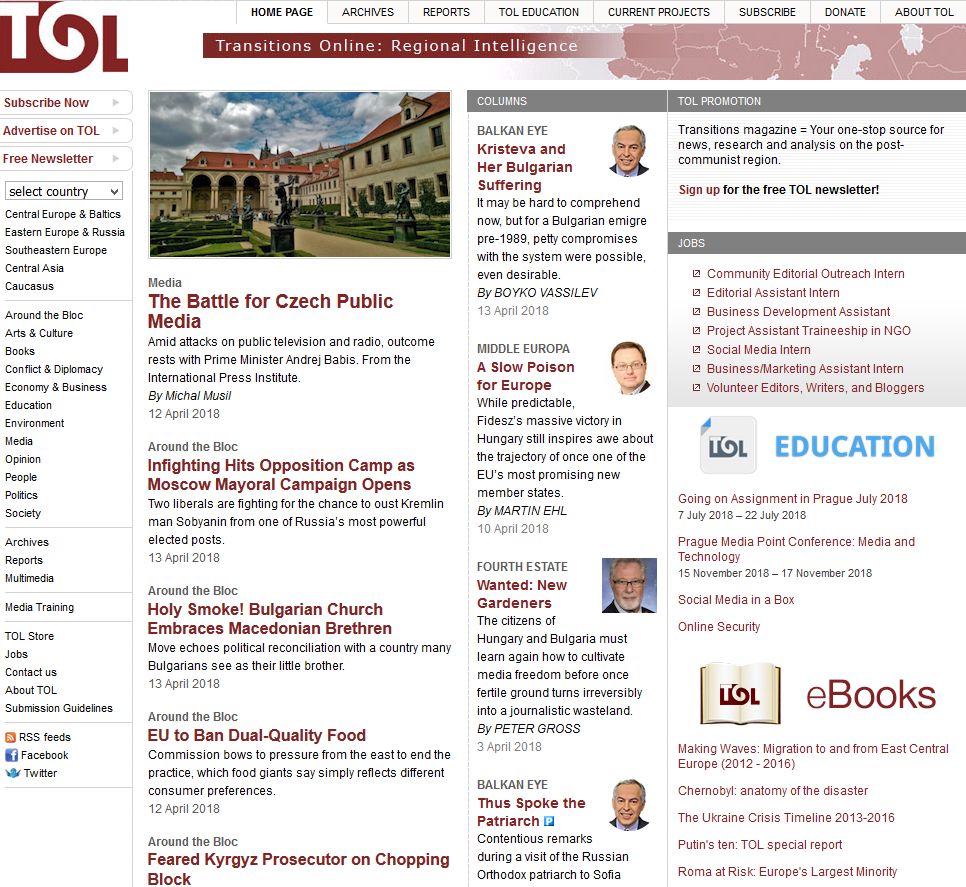
While predictable, Fidesz’s massive victory in Hungary still inspires awe about the trajectory of once one of the EU’s most promising new member states.
More...
Closure of a daily and radio station owned by opposition magnate tightens the ruling party’s grip on tools of power.
More...